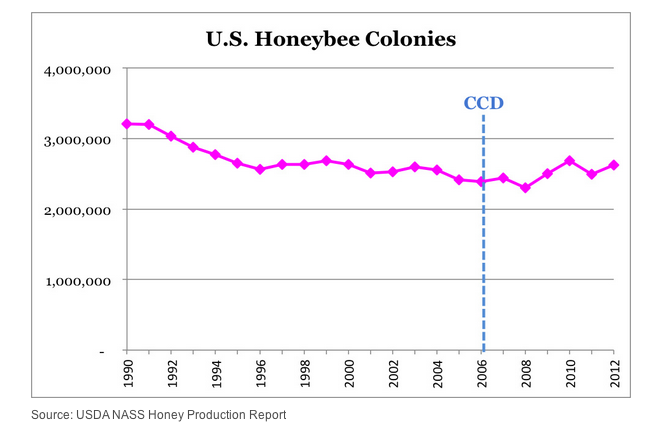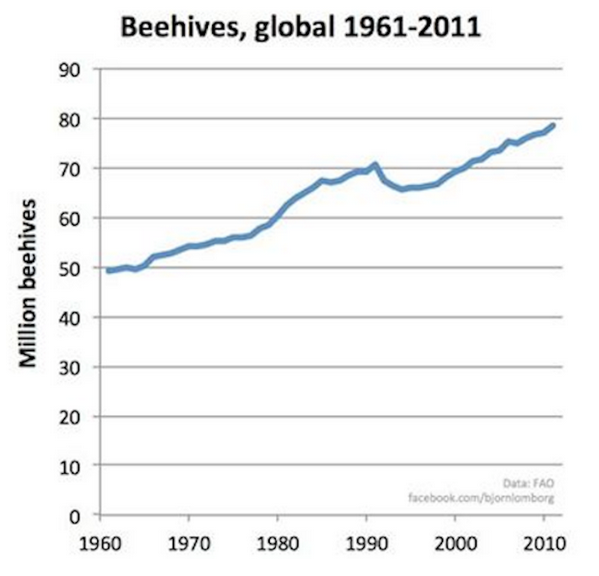 Even we at ACSH were surprised at this one. The discussion about the reasons behind the so-called beepocalypse has been entirely focused on its cause. Some suspects have been cell towers, pesticides, and infectious diseases Tobacco Ringspot Virus being the latest theory.
Even we at ACSH were surprised at this one. The discussion about the reasons behind the so-called beepocalypse has been entirely focused on its cause. Some suspects have been cell towers, pesticides, and infectious diseases Tobacco Ringspot Virus being the latest theory.
But if you follow some of the references in Jon Entine s recent Forbes op-ed, entitled Bee Deaths Reversal: As Evidence Points Away From Neonics As Driver, Pressure Builds To Rethink Ban, you will end up here: A 2013 article entitled Everyone calm down, there is no bee-pocalypse, which appeared on the Quartz website - a business news publication of the Atlantic Media Company.
In this piece, author Shawn Regan, a research fellow at the Property and Environment Research Center in Bozeman, Montana drops a data bombshell from a USDA report bee colonies are just fine.
The graph (below) clearly indicates that there has been no collapse.

Furthermore, according to a 2010 report by the United Nations Environment Programme, except for a dip around 1990, bee colony populations have been steadily rising since 1960 (graph below).

ACSH s Dr. Josh Bloom comments, Along with many other folks not deeply involved in this subject,I just assumed , based on the widespread media reports, that there were serious problems with bees dying en masse. Indeed, just being outside in the spring seemed to reinforce this. It sure looked like there were fewer bees around in the last few years. Or were my observations colored by the news? I guess, in the absence of any evidence to the contrary, this explanation is at least as plausible as any of the others. Maybe more so.


